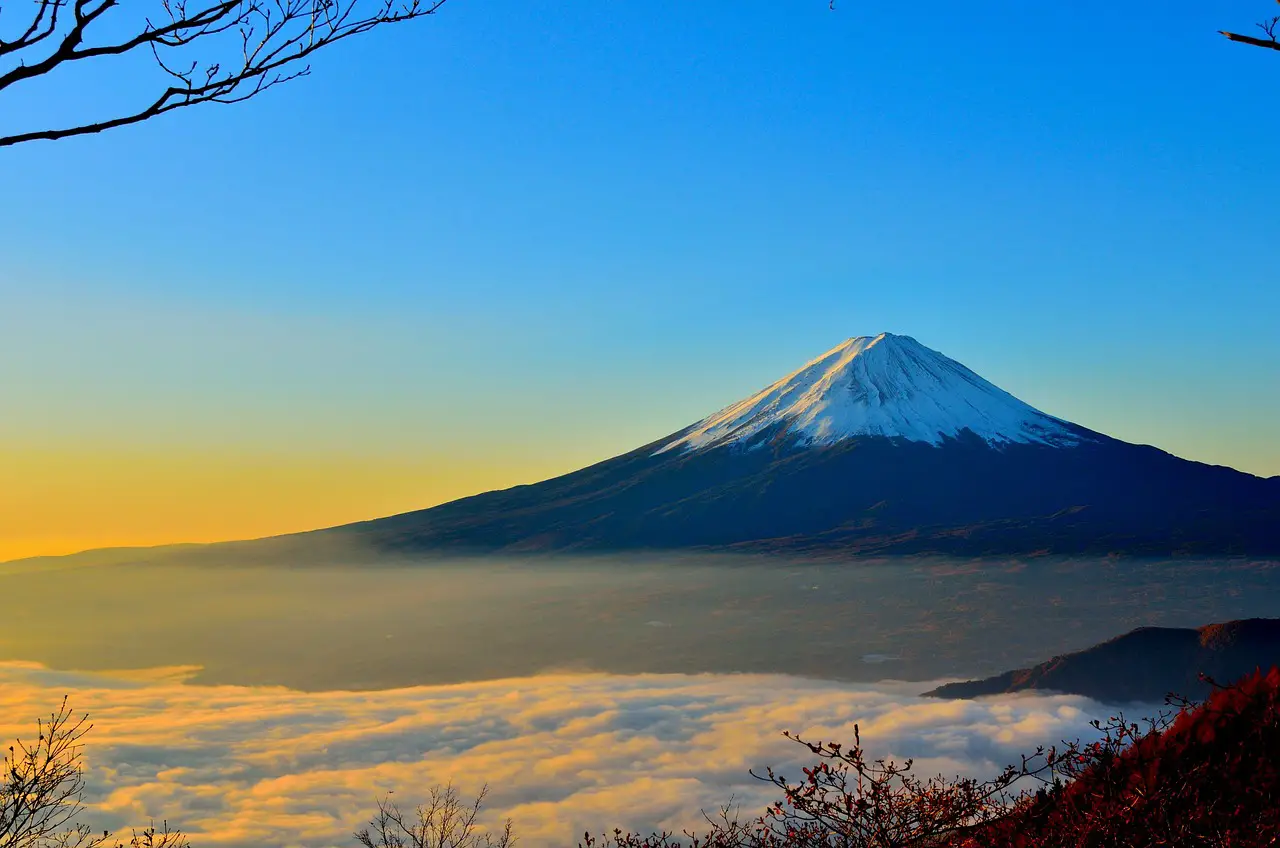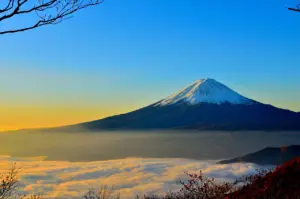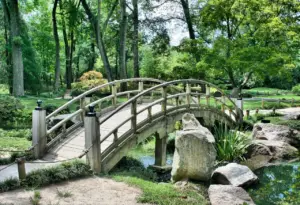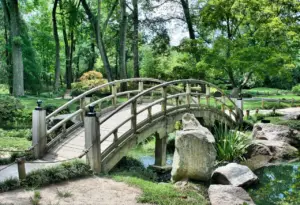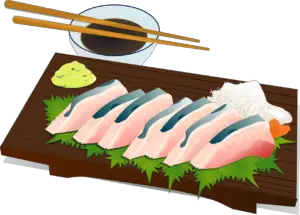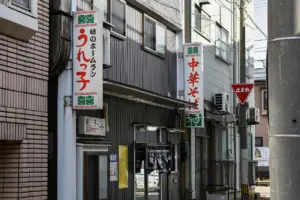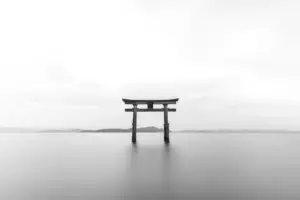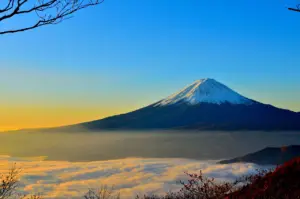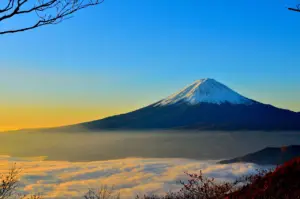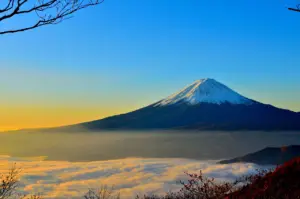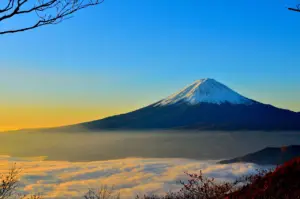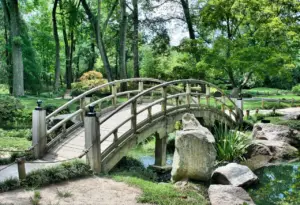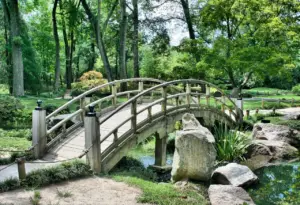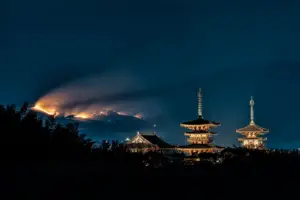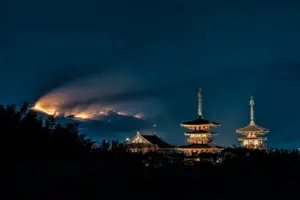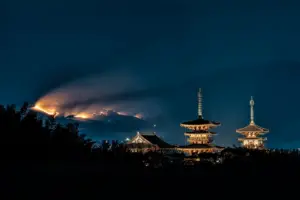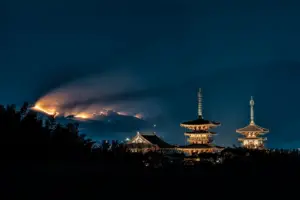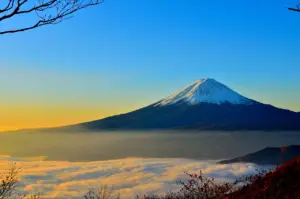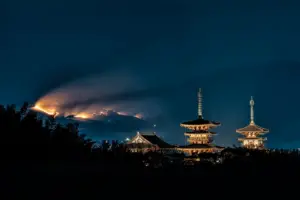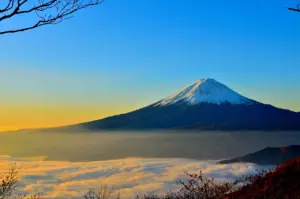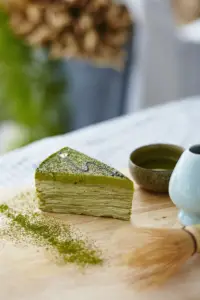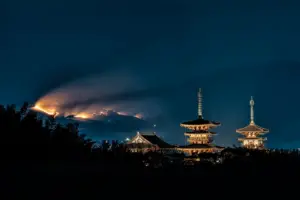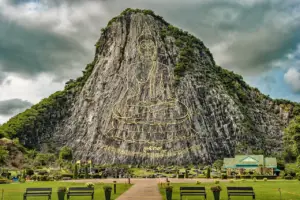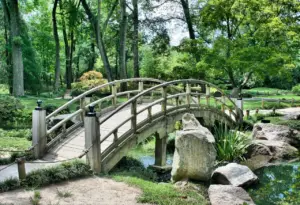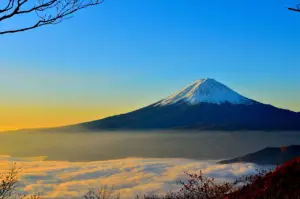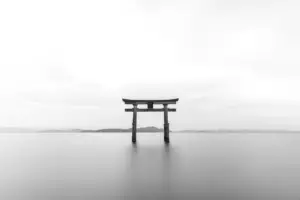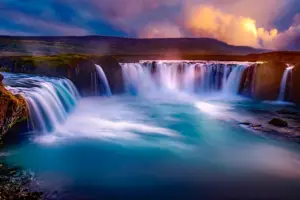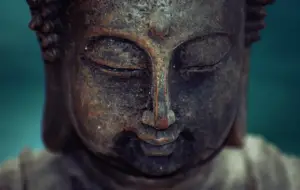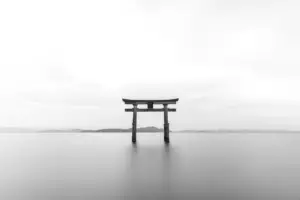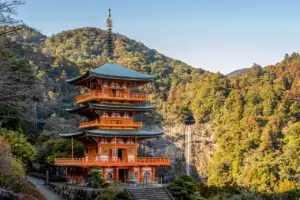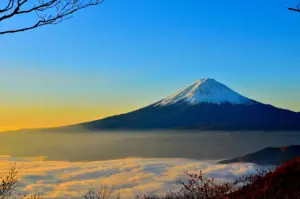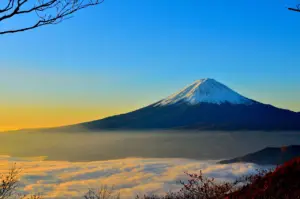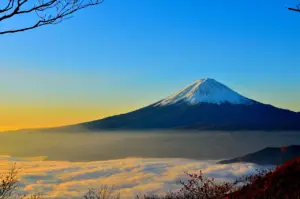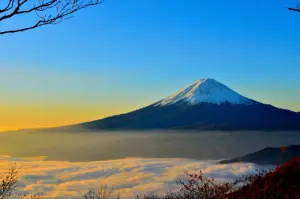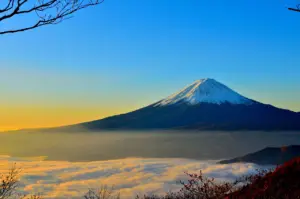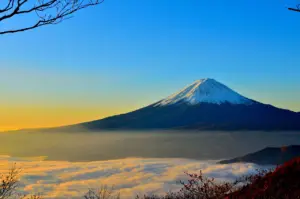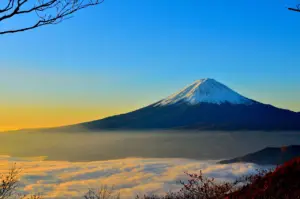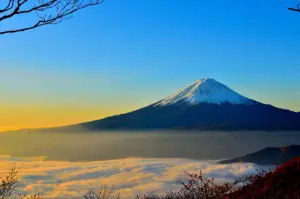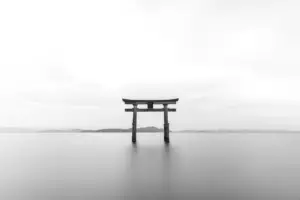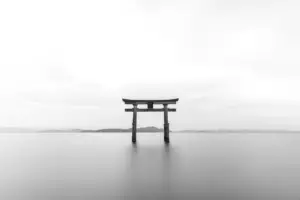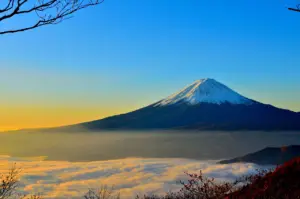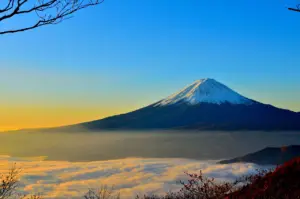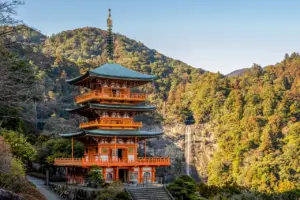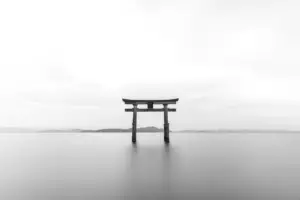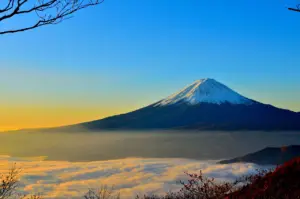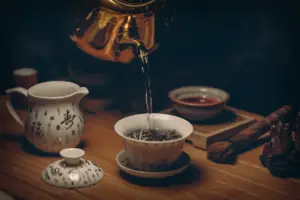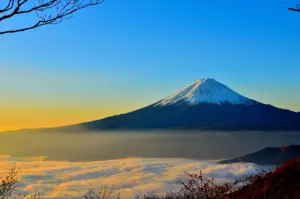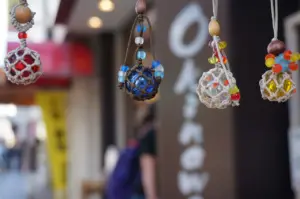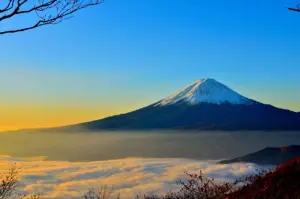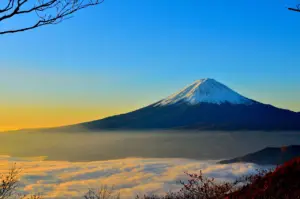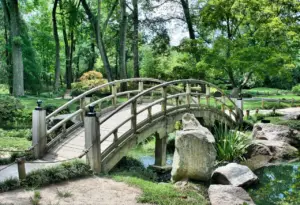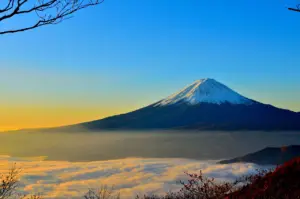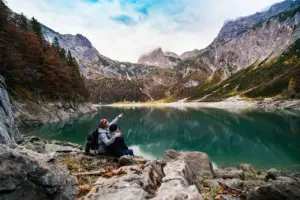Are you in need of a break from the stresses of daily life? Look no further than the onsen, or hot springs, of Kanagawa. These natural wonders have been a part of Japanese culture for centuries, offering relaxation and rejuvenation for those who visit them.
The history and cultural significance of onsen run deep in Japan. It is believed that the first onsen was discovered over 3,000 years ago by a wounded deer who found healing in the hot spring waters. Since then, onsen have become an integral part of Japanese culture, with people flocking to them for both their health benefits and their calming atmosphere.
In Kanagawa, you’ll find a variety of onsen with unique properties, each offering a different experience for visitors. So why not take a break from the hustle and bustle of everyday life and immerse yourself in the restorative powers of the onsen?
Key Takeaways
- Onsen culture has been a part of Japanese society for centuries and offers numerous health benefits such as stress relief, improved circulation, and detoxification.
- There are different types of onsen with unique properties, such as alkaline onsen for skin rejuvenation and sulfur onsen for respiratory issues.
- Kanagawa has several onsen destinations, including Hakone Onsen known for its therapeutic waters and stunning mountain scenery, Yugawara Onsen for its rich history and traditions, and Atami Onsen, one of the oldest hot spring resorts in Japan.
- To fully experience Kanagawa’s onsen towns, staying at a traditional ryokan with its own hot springs and indulging in the delicious local cuisine is a must, while transportation by train and scenic routes such as Odakyu Romancecar and Enoshima Electric Railway are recommended.
History and Cultural Significance of Onsen
You might be surprised to learn that the history and cultural significance of onsen in Kanagawa dates back centuries, making it more than just a relaxing activity but a treasured part of the region’s heritage.
Onsen were first used by the Japanese for their health benefits, as the natural hot springs were believed to have healing properties. Over time, onsen became a popular pastime among the people, serving as a place for relaxation, socializing, and even romance.
Onsen culture also plays a significant role in Japanese society, with many onsen establishments being passed down through generations of families. The traditional onsen experience involves washing and soaking in communal baths, which promotes a sense of community and respect for others’ privacy.
Today, onsen continue to be a beloved part of Japanese culture, and travelers from all over the world come to Kanagawa to experience the relaxation and rejuvenation that onsen have to offer.
Types of Onsen and Their Unique Properties
Are you ready to dive deeper into the world of onsen? Let’s talk about the different types of onsen and their unique properties.
First up, we have the alkaline onsen, which is known for its skin-rejuvenating properties.
Next, we have sulfur onsen, which is said to help with respiratory issues and is known for its distinctive smell.
And finally, we have iron-rich onsen, which is believed to help with anemia and fatigue.
With so many options to choose from, it’s no wonder onsen are a popular destination for relaxation and healing.
Alkaline Onsen
Indulging in the alkaline onsen will leave you feeling rejuvenated and refreshed. This type of onsen contains high levels of bicarbonate and sodium, which help to soften and smooth your skin. The alkaline properties also promote blood circulation and help to relieve muscle pain and stiffness.
Here are three benefits of soaking in an alkaline onsen:
- The high bicarbonate content can help to soothe skin conditions such as eczema and psoriasis.
- The alkaline properties can help to balance the pH levels of your skin, leaving it feeling soft and supple.
- Soaking in an alkaline onsen can help to reduce stress and promote relaxation, making it the perfect way to unwind after a long day of exploring Kanagawa’s hot springs.
Sulfur Onsen
Immerse yourself in the invigorating sulfur onsen and let the natural minerals cleanse and purify your body and soul. Sulfur springs are known for their therapeutic benefits and are said to relieve various ailments such as skin problems, joint pain, and respiratory issues. The sulfuric water has a distinct odor, but don’t let that discourage you from experiencing its healing properties.
In fact, the sulfur onsen has been a popular destination for those seeking relaxation and rejuvenation. The minerals in the water not only promote physical healing but also aid in mental relaxation. Take a deep breath and let the warm water and sulfuric steam envelop you. As you relax, allow your mind to wander and let go of the stresses of daily life. Don’t hesitate to try the sulfur onsen and experience the rejuvenating benefits for yourself.
| Mineral | Benefit | Effect | ||||
|---|---|---|---|---|---|---|
| Sulfur | Promotes collagen synthesis | Anti-aging | ||||
| Calcium | Strengthens bones and teeth | Prevents osteoporosis | ||||
| Sodium | Regulates fluid balance | Replenishes electrolytes | ||||
| Chloride | Aids digestion | Improves metabolism | ||||
| Carbonates | Softens skin | Reduces inflammation | Magnesium | Helps with muscle and nerve function | Regulates blood pressure |
Iron-rich Onsen
Don’t miss out on the iron-rich onsen experience, where the high concentration of minerals can help improve blood circulation and relieve muscle tension. Iron is known for its healing properties and can assist in the prevention of anemia.
The warm water promotes the dilation of blood vessels, allowing for increased oxygen and nutrient flow throughout the body. This can lead to an overall feeling of rejuvenation and relaxation.
Iron-rich onsen can also benefit those with skin conditions. The minerals found in the water can help to detoxify and nourish the skin, leaving it feeling soft and smooth. The high iron concentration can also aid in the production of collagen, which can help to reduce the appearance of fine lines and wrinkles.
So, make sure to add an iron-rich onsen to your list of must-visit hot springs in Kanagawa for a truly rejuvenating experience.
Health Benefits of Onsen
Experience the rejuvenating effects of soaking in a hot spring at one of Kanagawa’s many onsen. Not only is it a relaxing activity, but there are also numerous health benefits associated with onsen bathing. Here are three benefits you can enjoy:
-
Relieves stress: The warm water and tranquil environment of onsen can help reduce stress and promote relaxation. Soaking in onsen can also help improve sleep quality and reduce anxiety levels.
-
Improves circulation: The heat from the onsen water can help increase blood flow and oxygenation throughout the body. This can help alleviate pain and soreness in muscles and joints and promote overall healing.
-
Detoxifies the body: The mineral-rich water in onsen can help draw out toxins and impurities from the body, leaving you feeling refreshed and rejuvenated. Additionally, the heat can help open up pores and promote sweating, further aiding in the detoxification process.
Take a break from your busy life and indulge in the therapeutic benefits of onsen bathing. Your mind and body will thank you for it.
Etiquette and Rules for Using Onsen
It’s imperative to adhere to the customs and regulations when utilizing the traditional Japanese onsen, as it’s a cultural experience that demands respect and consideration.
One of the first things to remember is that you must be completely naked when entering the onsen. Don’t worry, though. Everyone else will also be naked, so there’s no need to feel self-conscious.
Before entering the onsen, make sure you wash yourself thoroughly at the washing area. This is not only for hygiene purposes but also to show respect for the other bathers.
When soaking in the hot spring, keep your towel out of the water. You can either place it on your head or on the side of the onsen. Also, try not to splash around too much or make loud noises as this can disturb the other bathers.
Lastly, it’s important to note that tattoos are generally not allowed in onsen due to the association with the yakuza (Japanese mafia). So, if you have any visible tattoos, it’s best to cover them up or choose a private onsen instead.
By following these rules and customs, you’ll be able to fully immerse yourself in the tranquility and relaxation of the onsen experience.
Popular Onsen Destinations in Kanagawa
If you’re looking for a great onsen experience in Kanagawa, you won’t want to miss Hakone Onsen, Yugawara Onsen, and Atami Onsen. These popular destinations offer a variety of hot springs with different minerals and temperatures, as well as stunning natural surroundings.
Whether you’re looking for relaxation or rejuvenation, these three onsen towns are sure to deliver.
Hakone Onsen
Visitors to Hakone Onsen can’t help but feel rejuvenated by the natural hot springs and stunning mountain scenery. Located in the Fuji-Hakone-Izu National Park, this onsen is known for its therapeutic waters that are said to heal various ailments.
The water is rich in minerals such as sulfur, calcium, and magnesium which are believed to have healing properties that can soothe muscle pain, relieve stress, and improve skin conditions.
Hakone Onsen offers a variety of hot spring baths, including indoor and outdoor options. The outdoor baths, also known as rotenburo, offer an immersive experience where you can soak in the hot water while enjoying the breathtaking views of the surrounding mountains.
There are also private baths available for those who prefer a more intimate experience. Whether you’re looking for relaxation or rejuvenation, Hakone Onsen is an ideal destination that offers both in a serene and tranquil setting.
Yugawara Onsen
You’ll be delighted to discover Yugawara Onsen, a hidden gem tucked away in the mountains of Japan. This onsen town is known for its rich history and traditions, making it a popular destination for those seeking relaxation and rejuvenation.
Here are some reasons why Yugawara Onsen should be on your travel list:
-
Natural Hot Springs: Yugawara Onsen is home to numerous natural hot springs that are believed to have healing properties. These hot springs are said to help soothe and relax tired muscles, improve blood circulation, and even treat skin ailments.
-
Scenic Beauty: The town is surrounded by lush greenery and beautiful landscapes, making it a perfect place to unwind and connect with nature. Take a stroll or hike through the nearby mountain trails and enjoy the stunning views of the surrounding area.
-
Cultural Experience: Yugawara Onsen is steeped in history and tradition, offering a unique cultural experience to visitors. Learn about the town’s history and traditions by visiting the local museums and temples, or try your hand at making traditional Japanese crafts like pottery and paper.
Whether you’re looking for a relaxing retreat or an immersive cultural experience, Yugawara Onsen has something for everyone. So why not add it to your travel list and discover this hidden gem for yourself?
Atami Onsen
Get ready to immerse yourself in the vibrant atmosphere of Atami Onsen, where you can experience the perfect blend of modern amenities and traditional Japanese culture.
Atami is one of the oldest hot spring resorts in Japan and has been a popular destination for centuries. The name ‘Atami’ means ‘hot ocean,’ and it’s easy to see why.
With over 20 hot springs in the area, you can soak in the rejuvenating waters while enjoying the stunning views of the Pacific Ocean.
Atami Onsen is also known for its unique black water hot springs, which are said to have various health benefits. The black color comes from the high concentration of iron and other minerals in the water.
In addition to soaking in the hot springs, you can also explore the town’s many attractions, including museums, parks, and shrines. Don’t forget to try the local specialty, ‘Atami seafood,’ which features fresh seafood caught in the nearby ocean.
Whether you’re seeking relaxation or adventure, Atami Onsen is a must-visit destination for anyone traveling to Kanagawa.
Mount Fuji and the Surrounding Landscapes
With its majestic presence, Mount Fuji dominates the surrounding landscapes and provides a stunning backdrop for any onsen experience. As you immerse yourself in the warm waters of an onsen, let your eyes wander and take in the beauty of this iconic mountain.
Here are some of the sights you can expect to see:
- The snow-capped summit of Mount Fuji, towering above the horizon like a beacon of tranquility.
- The lush greenery of the surrounding forests, stretching out in every direction and providing a soothing contrast to the mountain’s stark beauty.
- The crystal-clear waters of nearby lakes and streams, reflecting the mountain’s image and creating a serene atmosphere.
- The picturesque villages and towns nestled at the foot of the mountain, showcasing traditional Japanese architecture and adding to the overall charm of the area.
- The changing colors of the landscape throughout the seasons, from the vibrant hues of autumn to the delicate blossoms of spring.
As you soak in the healing waters of an onsen, take a moment to appreciate the stunning scenery around you. Mount Fuji and its surrounding landscapes are a testament to the beauty of nature and the restorative power of relaxation.
Planning Your Onsen Experience
When planning your onsen experience, there are a few key points to consider. Firstly, you’ll need to think about accommodations and booking. There are a wide range of options available, from traditional ryokans to modern hotels, so take some time to research what will work best for you.
Secondly, transportation can be a bit tricky in rural areas, so it’s important to plan ahead and consider renting a car or taking a bus or train.
Lastly, don’t forget to indulge in the local cuisine and dining options, as many onsen towns are known for their delicious food.
With these tips in mind, you’ll be well on your way to a relaxing and rejuvenating onsen experience.
Accommodations and Booking
Staying at a traditional ryokan is a must when looking for an authentic onsen experience, and booking in advance is highly recommended to ensure availability. These Japanese-style inns offer a unique experience that combines relaxation, comfort, and cultural immersion.
Most ryokans have their own hot springs, which are usually open to guests only, providing a more intimate and private experience. When booking a ryokan, it’s important to consider the location, facilities, and services offered.
Some ryokans are located in remote areas, offering a peaceful and secluded atmosphere, while others are situated in bustling cities, providing easy access to local attractions. Additionally, some ryokans offer traditional Japanese meals, while others have Western-style options.
It’s important to research and compare different ryokans to find the one that best suits your preferences and budget.
Transportation Tips
To fully experience the beauty of Japan’s countryside and immerse yourself in the local culture, hop on a train and explore the scenic routes that take you through lush greenery, quaint villages, and breathtaking landscapes. The most convenient way to travel around Kanagawa’s onsen towns is by train, as most of them are located near train stations. The Japan Rail Pass is a great option for those who plan on traveling beyond Kanagawa, as it allows unlimited travel on JR trains for a fixed period of time.
Here are some transportation tips to help you navigate the area:
-
Take the Odakyu Romancecar from Shinjuku Station to Hakone-Yumoto Station for a comfortable and scenic ride.
-
The Enoshima Electric Railway, also known as the Enoden, is a charming and nostalgic way to travel between Kamakura and Fujisawa.
-
If you plan on visiting multiple onsen towns, consider purchasing the Hakone Free Pass or the Kamakura-Enoshima Pass for discounted train and bus fares.
-
Taxis are also available in most onsen towns, but they can be expensive, so it’s best to use them sparingly.
Local Cuisine and Dining Options
Indulge in the delicious local cuisine and dining options available in Kanagawa’s onsen towns, from fresh seafood to traditional Japanese dishes with a modern twist.
In Yugawara, try the local specialty called ‘kamaboko,’ which is a type of fish cake that is steamed and served with a soy sauce-based dipping sauce. You can also find a variety of seafood dishes, such as sashimi, tempura, and grilled fish, at the many restaurants lining the streets.
If you’re looking for a more traditional dining experience, head to Hakone and try some of the local dishes like ‘oden,’ a stew consisting of various ingredients, including fish cakes, boiled eggs, and vegetables, in a soy-flavored broth. Another must-try is ‘houtou,’ a noodle dish made with thick, flat udon noodles in a miso-based soup with vegetables and meat.
With so many options available, you’re sure to find something to satisfy your taste buds and leave you feeling satisfied during your onsen adventure.
Frequently Asked Questions
Are there any age restrictions for using onsen in Kanagawa?
Yes, there are age restrictions for using onsen in Kanagawa. Most onsen facilities have a minimum age requirement of 12 or 13 years old due to safety concerns and the high temperature of the water. However, some onsen may allow younger children to enter with adult supervision or during certain hours.
It’s important to check with each onsen facility beforehand to ensure that you’re able to enjoy the experience safely and without any issues. Despite the restrictions, onsen in Kanagawa offer a unique and relaxing experience for all ages, so be sure to plan accordingly and enjoy the rejuvenating benefits of these natural hot springs.
Can I wear a swimsuit or any other clothing while using an onsen?
Yes, you can wear a swimsuit or other clothing while using an onsen in Kanagawa. It’s important to note that not all onsen facilities allow swimwear, so it’s best to check beforehand.
If swimwear is allowed, it’s typically required to wear a special type of swimsuit provided by the facility, as regular swimsuits can contaminate the natural hot spring water.
Additionally, some onsen may have separate areas for men and women, and some may allow mixed-gender bathing while others do not.
It’s important to follow the rules and etiquette of each individual onsen to ensure a comfortable and respectful experience for all patrons.
Is it necessary to speak Japanese to communicate with the staff at onsen facilities?
You don’t need to speak Japanese to communicate with the staff at onsen facilities in Kanagawa. Many of the staff members speak English, and signage is often available in both Japanese and English.
Additionally, onsen etiquette is fairly universal, so you can follow the same guidelines regardless of language barriers. However, if you do want to brush up on some Japanese phrases, it can certainly enhance your experience and show respect for the local culture.
Overall, don’t let language concerns stop you from enjoying the relaxation and rejuvenation that onsen can offer.
Are there any onsen facilities that cater specifically to families with young children?
Yes, there are many onsen facilities in Japan that cater specifically to families with young children. These family-friendly onsen often have separate areas for children to play and bathe, as well as special amenities like kid-sized yukatas and toys. Some even have outdoor pools and water slides that are perfect for younger visitors.
Additionally, many onsen facilities offer special family packages that include meals and overnight accommodations, making it easy for families to enjoy a relaxing and rejuvenating getaway together. So if you’re looking for a hot springs experience that the whole family can enjoy, be sure to do your research and find an onsen that caters to your needs.
What is the best time of year to visit onsen in Kanagawa?
The best time of year to visit onsen in Kanagawa is during the winter months, specifically from December to February. This is because the cold weather during this time creates the perfect atmosphere for soaking in the hot springs.
Additionally, many onsen facilities offer winter events and activities such as illuminations, snow festivals, and traditional Japanese New Year celebrations. However, if you prefer a quieter and more peaceful experience, it’s recommended to visit during the weekdays or outside of peak holiday periods.
Regardless of when you choose to visit, be sure to bring a towel and change of clothes, as well as an open mind to fully embrace the relaxation and rejuvenation that onsen have to offer.
Conclusion
Congratulations! You’ve now explored the wonderful world of onsen in Kanagawa. With its rich history and cultural significance, onsen has become an integral part of Japanese culture and daily life.
Not only can you relax and rejuvenate in the warm waters, but you can also experience the unique properties and health benefits that each onsen has to offer.
As you plan your onsen experience, don’t forget to brush up on the etiquette and rules for using onsen. Knowing how to behave in this sacred space will ensure a peaceful and respectful atmosphere for all guests.
And with so many popular onsen destinations in Kanagawa, including the stunning landscapes surrounding Mount Fuji, there is no shortage of options for your next getaway.
So why not take a break from the hustle and bustle of everyday life and immerse yourself in the tranquil and healing waters of an onsen? Your mind, body, and spirit will thank you for it. And who knows, you may even discover a new appreciation for the simple pleasures in life.
Happy soaking!


